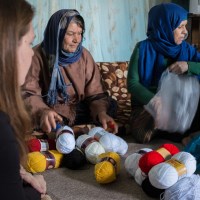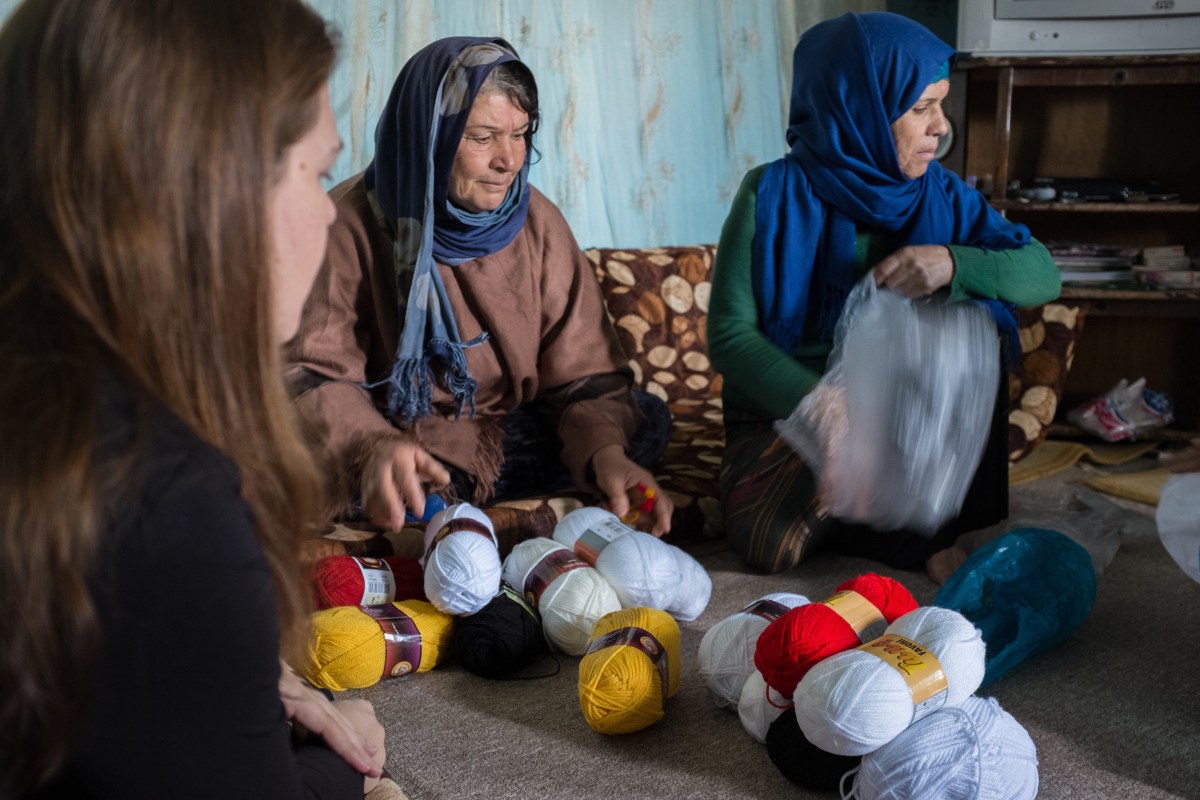On the surface, the small businesses you help displaced families start all look pretty much the same. Women and men whose lives have been turned upside-down by war get the chance to earn a living, support their families, and rebuild their lives. But you don’t have to scratch very far below the surface to see vastly different starting points.
Sometimes you help men resume businesses interrupted by war. They already have a trade and skills. Before conflict disrupted their lies, they ran successful businesses. Their shop may have even survived the war more or less intact, but their equipment and supplies were either destroyed or looted by ISIS. These businesses are fast restarts: you provide missing equipment and supplies, the business owners pick up where they left off with their talents and labor. Their families get to eat, and decimated neighborhoods get one step closer to recovery.
But it’s not always that simple. Most of the businesses you invest in are much more complicated. Which is why there is no one-size-fits-all approach to helping refugees rebuild. It’s why empowerment can’t be mass-produced. At the end of the day, empowerment is a relationship, not a transaction.
We work with many families who are learning to live in completely new circumstances: rural families displaced from generational farms, war widows who have never before been wage earners, civilians disabled by war and figuring out a different way of interacting with the world.
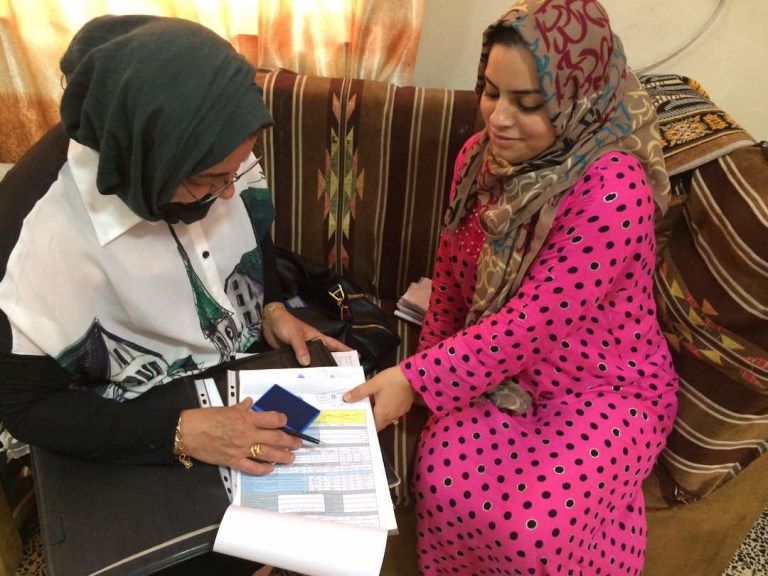
These new business owners need more than equipment and supplies to succeed. They need more than a “training certificate” that says they’ve learned a new skill. They need coaching—and that can only happen within a relationship.
Investing Ourselves, Not Just Cash
Our very first investment in every refugee-turned-business-owner is listening to their story. We know that everyone we work with has skills—they might not realize it themselves, though.
We spend time listening to their stories, learning about their lives before war. From these stories, we tease out the talents, past experiences, and hopes that can be shared with their community in the form of a business.
Coaching looks different for every business owner. We respond to their needs and address any knowledge gaps they might have. Some need coaching on how to write a simple business plan, so they can set prices based on actual costs. Some need coaching on budgeting, money management, and debt repayment, especially for those living in refugee camps where debt can become a crushing burden.
Investing After Empowerment, Not Just Before
Our work isn’t done once the empowerment grant is spent and the business is established. We continue to walk alongside refugee business owners. We help them strategize ways to expand their product lines, and how they can invest learned experience and business profits back into their businesses.
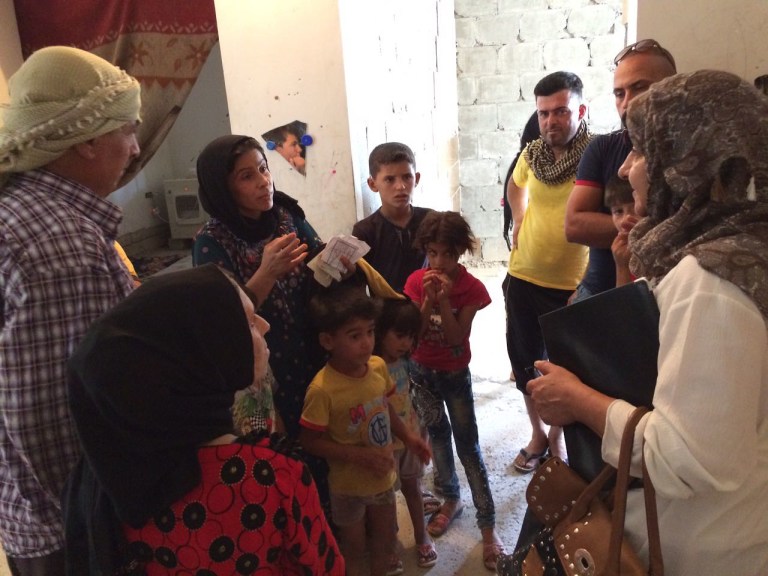
If their business isn’t successful, we coach them through next steps in finding the unmet needs in their community and shifting their business in a different direction.
For folks who have never owned a business before, sometimes they have to “taste the worth of their work” in order to have the encouragement to keep going. We cheer them on and celebrate every victory. We ask them the kinds of questions that propel them forward. What do you think has been good about your business? Why have you been able to save money? How can you get more of that?
We spend a lot of time, with women in particular, talking about their worth. We talk in specific terms, praising the talents and abilities we see in them—and highlighting the skills we see growing as they succeed in their business. We talk about their worth in front of their families and neighbours, and in time, we find that their community recognizes their worth in new ways too.

Investing in Communities, Not Just Individuals
It used to be that each time we visited a business owner, neighbours would come to us with their own demands. When we visited a seamstress, the neighbors would come to us and say, “Well, where’s my sewing machine? Why aren’t you giving me a sewing machine?”
They were so used to large aid organizations showing up with the tools for work, without providing real opportunity.
Now that they’ve sat in on enough of these coaching sessions with their neighbours, they’re not asking us for tools anymore. They’re coming to us with business ideas. We’re coaching them before their business even gets started, and then through the process of developing their business.
As a result, we are seeing a new creativity in the communities and refugee camps where we work. We see different kinds of initiative because people know that they aren’t in this venture alone. We see forward-thinking in their businesses—they are no longer desperate to earn enough for today’s bread. Instead they can start to think and plan seasonally, like all local shops do.
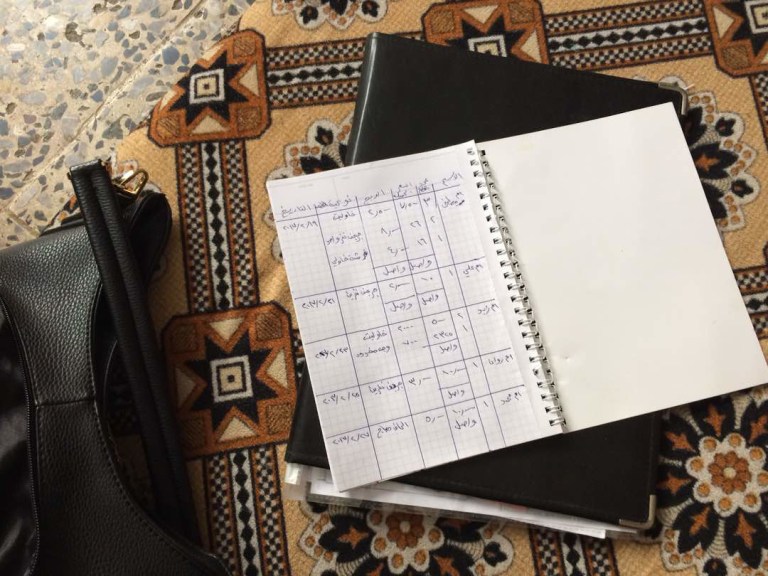
The Results of Investment
When we visit with business owners, we see the tangible results of our investment in their businesses and lives…
They are paying down personal debts, which have been crippling for many. They are seeing doctors and dentists for the first time in years, because they can afford the visits and medication now.
They are tucking away savings, expanding their shop inventories, saving up for side businesses and making plans to set up relatives in businesses of their own.
They are sharing with their neighbours, helping relatives, and giving hope to their children.
The impact of the hours we invest in relationship and coaching doesn’t show up directly in monthly statistics of “number of businesses started.” But we wanted you to know the fuller impact of your investment in families displaced by conflict.

